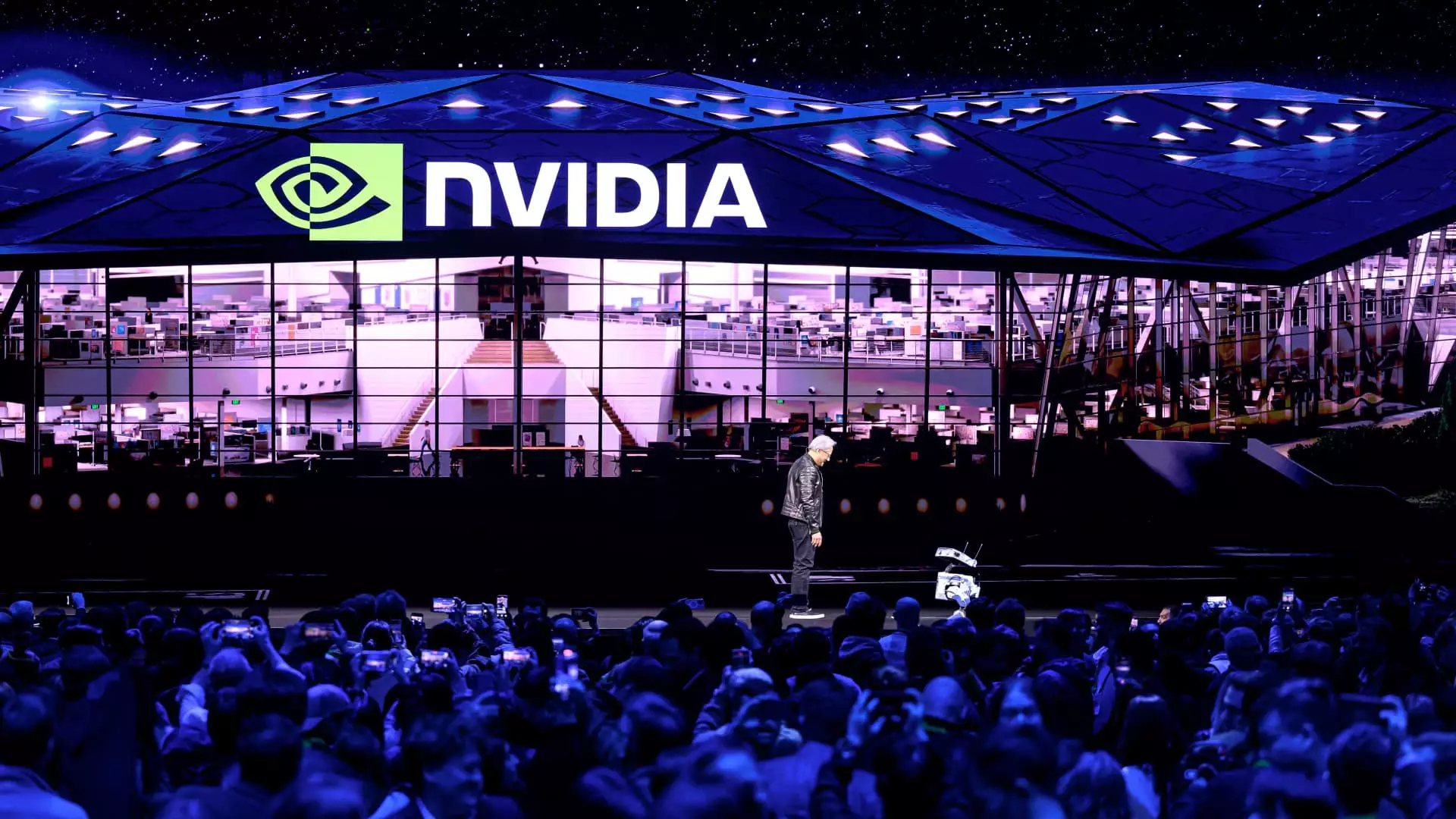The semiconductor industry is no stranger to the cyclical nature of market demands, but Nvidia, under the visionary leadership of CEO Jensen Huang, has managed to place itself at the forefront of a revolutionary wave. The graphics processing units (GPUs) from Nvidia are not just components; they are integral to the tapestry of modern artificial intelligence applications. As Brad Gerstner of Altimeter Capital noted, the current growth trajectory in demand is “off the charts.” Rather than fear the impending financial winter that tariffs can seed, Nvidia seems poised to weather the storm, proving its resilience time and time again.
Understanding Trump’s Tariff Policy
President Trump’s announcement of aggressive tariffs aimed to establish America’s stance in international trade. However, while the aggression may send shockwaves through the economy, certain sectors, particularly tech, have avenues for resilience hidden in plain sight. The so-called “reciprocal tariff” policy could easily be perceived as a negative force, yet the inclusion of semiconductors as exempt highlights a nuanced understanding of global competitiveness. This decision appears wise, recognizing that many nations are competing fiercely in the AI domain, and punishing companies essential to this innovation would be harmful to U.S. interests.
Nvidia’s Strategic Positioning
Nvidia’s agility in its operations, coupled with its strategic partnerships and product offerings, positions it as a formidable entity within the tech ecosystem. With manufacturing typically outsourced to Taiwan—a decision born not only from cost considerations but also chip fabrication capabilities—Nvidia reinforces its competitive edge in the AI race. The reliance on foreign production chains raises eyebrows, yet the reality is that Nvidia’s domestic designs propel the U.S. forward in a race increasingly defined by technological superiority.
The Recurring Narrative of Recession
As Gerstner expresses unease regarding recessionary pressures stemming from tariff policies, one can’t help but consider the broader implications. A recession caused by political blunders could strangle innovation and curtail growth across multiple sectors. Yet, for Nvidia, this fear might be overblown. The company’s inherent value lies not just in its product lineup but in its ability to innovate rapidly—ChatGPT’s explosion in popularity is evidence of this. Timing in tech often trumps external pressures, and Nvidia’s timing seems just right.
Competitors in the AI Race
The focus on Nvidia should not detract from the fierce competition from other major players like Meta and Microsoft. While the tariffs pose a significant threat to these tech giants, Nvidia appears insulated from the worst impacts due to its unique market position. Yet, a deeper examination reveals something vital: the need for the U.S. to maintain leadership in AI is paramount, not just for economic reasons but for national security as well.
A Call for Strategic Focus
In this age of AI and unprecedented growth in computing power, industry players must realize that merely responding to tariffs will not suffice. Proactive measures are necessary. It is crucial for leaders to undertake bold initiatives to sustain innovation while navigating the treacherous waters of international trade. The stakes are high, but Nvidia’s recent trajectory showcases that opportunity often accompanies adversity. Rather than cower in the shadows of protectionism, companies must rise to the occasion and claim their space at the forefront of technological advancement.

